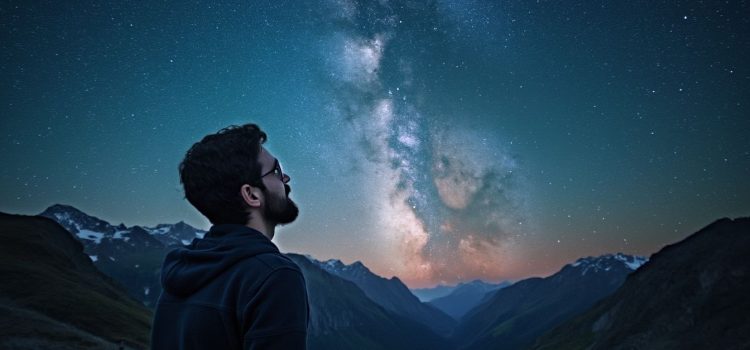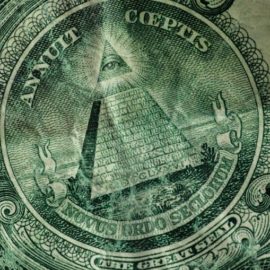

This article is an excerpt from the Shortform book guide to "Darwin's Dangerous Idea" by Daniel C. Dennett. Shortform has the world's best summaries and analyses of books you should be reading.
Like this article? Sign up for a free trial here.
What role has evolution played in reshaping our understanding of purpose and meaning? How has Darwin’s theory transformed our view of human existence?
From challenging religious beliefs to redefining our place in the universe, evolutionary theory has revolutionized human thought. The concept extends far beyond biology, touching everything from philosophy to our understanding of time and consciousness.
Keep reading to get Daniel Dennett’s take on the impact of evolution on society from his book Darwin’s Dangerous Idea.
The Impact of Evolution on Society
Dennett contends that Darwin’s theory of evolution challenges traditional religious and philosophical dogmas. Indeed, Dennett writes that the influence of Darwinism has extended far beyond biology, fundamentally reshaping all intellectual and philosophical frameworks that existed before it.
We’ll explore four aspects of the impact of evolution on society: how the theory removes the role of a creator or God from the natural world’s origins, how it challenges teleology (the doctrine that the natural world was created with some goal or purpose), the ever-changing character of the observable universe, and the highly contingent nature of human existence.
The Loss of a Creator
Dennett writes that the process of evolution, which as we’ve seen is guided by an unthinking algorithmic process, eliminates the need to attribute the complexity and diversity of life to a god or creator. This, he argues, directly threatens traditional dogmas.
(Shortform note: Some religious scholars, scientists, and theologians argue that faith in God and acceptance of evolution aren’t mutually exclusive. They argue that science explains how life has developed on Earth, while religion answers why life exists—two distinct questions that can coexist harmoniously. Furthermore, several mainstream religious organizations officially endorse evolutionary science. These include major denominations within Christianity, Judaism, Islam, Hinduism, and Buddhism. They view religion as a means to understand moral and spiritual truths while accepting science as a way to comprehend physical realities.)
Complexity Can Arise From Simplicity
Before Darwin, writes Dennett, most scientists used the argument from design to explain our world. This argument holds that the complexity and beauty of nature could not have happened accidentally; instead, it’s evidence of a deliberate “designer”—God, in the Judeo-Christian tradition—who is even more complex than life itself.
But, according to Dennett, evolution demonstrates how complexity can arise from simplicity through cumulative changes over time. Starting from simple self-reproducing entities (like single-cell organisms), 1) random mutations create slight variations, 2) environmental pressures favor certain variations over others, and 3) beneficial changes accumulate over many generations. Over billions of years, countless iterations of this algorithmic process can produce highly complex organisms and systems. Dennett argues that our understanding of evolution as a bottom-up process that results in complexity contradicts creator-centric dogmas, which are top-down.
| Who Created the Creator? In The God Delusion, evolutionary biologist Richard Dawkins argues that arguments postulating a supreme designer are illogical by nature. For creationists, he writes, an intelligent God is the ultimate explanation for everything. But this is where the “simple” theistic position begins to fall apart. If all things can be said to have their root cause in a complex and intelligent God, then one must raise the obvious question—what is the root cause of God? Did an even more complex creator design the designer? Dawkins writes that you can postulate an infinite regression of the physical universe that traces everything back to God. But if you can’t explain the existence of God in the first place, the argument collapses. |
The Absence of Teleology
Teleological thinking holds that there’s a purpose behind everything in the observable universe, such that every element of nature, from the smallest particle to the largest galaxy, exists for a reason and serves a particular function. Teleology is a cornerstone of many religious traditions, which argue that if everything was created for a reason, then an intelligent entity or divine will must have designed creation carefully, giving everything the capacity to fulfill its purpose. For example, a teleological view might hold that God gave birds wings “for” the purpose of flight and made trees produce oxygen “for” animals to breathe.
However, writes Dennett, Darwinism posits the opposite. Under Darwinism, there’s no teleology to the natural world—no design, purpose, goal, or objective that guides processes or phenomena. Instead, features like bird’s wings or trees’ oxygen production developed through algorithmic processes of random mutation and survival-driven adaptation.
| Teleology and the Roots of Religion In The God Delusion, Richard Dawkins writes that the existence of religion itself may be a by-product of what he describes as a natural tendency toward teleology and intentionality. Psychologists have observed this tendency in children, who sometimes believe that trees exist to shelter animals from the rain or that the ocean exists so fish can have a place to swim. Dawkins writes that teleology gives us a shortcut to understanding how things work. It’s easier to comprehend complex phenomena like the workings of the human lung if we conceive of them as purpose-driven (in the case of the lung, its purpose is to pump oxygen throughout the body). Closely related to teleology is intentionality, the belief that the things we observe in the world are the products of conscious agents with a specific intention. This would have been a useful trait for survival (it would be advantageous, after all, to assume that a hungry lion intends to eat you). Like Dennett, Dawkins argues that despite their evolutionary utility, neither teleology nor intentionality accurately reflects the nature of the universe. The world is better explained through natural, random processes like evolution. |
The Natural World Is in a State of Flux
Dennett argues that the theory of natural selection challenges traditional thought by positing that the natural world is in a constant state of flux. He notes that this stands in stark contrast to millennia of Western philosophical and religious traditions, which often sought to identify eternal truths and immutable forms in nature.
For example, the prevailing belief used to be that each species has immutable “essences.” According to this belief, the camel species has always been a camel species because it possessed certain “essential” characteristics—such as humps—even though there might be differences between individual camels. Dennett writes that Darwin challenged and ultimately discredited this belief by proposing that species change over time. Thus, instead of having some eternal “essence,” camels as we observe them today had a fixed beginning point at which they acquired their so-called “essence.”
| Challenging Absolute Essences: From Darwin to Einstein In A Brief History of Time, astrophysicist Stephen Hawking writes that, just as Darwin’s theory of evolution undermined the concept of fixed species with unchanging essences, the work of scientists like Ole Rømer, Henri Poincaré, and Albert Einstein dismantled the notion of absolute time: the idea that time is fixed. Danish astronomer Rømer’s discovery of the finite speed of light set the stage for this revolution. Rømer discovered that the speed of light is constant, regardless of the observer’s position or velocity. Building on this discovery, Einstein and Poincaré realized that for the speed of light to remain constant for all observers, time itself had to be relative. Thus, just as species were reframed as evolving populations rather than fixed types, time itself was reconceptualized as a relative phenomenon rather than an absolute framework. |
Our Existence Is a Matter of Chance
Dennett writes that humanity’s existence as we know it was not inevitable or preordained. Just as there’s no “purpose” of a bird’s beak or a butterfly’s wings, humans were not created “for” some purpose, and our existence doesn’t represent the ultimate goal or aim of the evolutionary process.
Indeed, human evolution, like all evolution, is a process driven by random mutations and natural selection. Thus, our specific anatomy—and even, as we’ll see, our unique form of intelligence and consciousness—represents just one possible outcome among a near-infinite number of hypothetical alternatives. It’s possible that we might have become an evolutionary dead end long ago if not for some fortunate mutations along the way.
Dennett cites the argument of evolutionary biologist Stephen Jay Gould, who observes that if we were to travel back in time and set the course of human evolution back to the beginning, the outcome would be radically different. It’s extremely unlikely that humans would ever evolve exactly the same way again.
(Shortform note: In The God Delusion, Richard Dawkins notes that creationists and other opponents of evolution dismiss natural selection because they mischaracterize it as claiming that evolution was a straightforward process that made the current state of the world inevitable—in effect, treating the evolutionary process as a direct substitute for God. But while the totality of the world as we observe it today is a great improbability, each of the countless individual steps along the evolutionary process was only slightly improbable. Dawkins writes that creationists mistakenly focus on the improbability of the end product, rather than the much greater probability of each iterative step along the way.)
Morality Evolved Through Reciprocity
Dennett writes that just as culture can be understood as an evolution of memes, so can morality: Our understanding of right and wrong, ethics, and altruism aren’t divine gifts but are instead transmitted culturally. We learn these behaviors from those around us, absorbing them as part of our cultural upbringing.
Dennett writes that an evolutionary or memetic explanation for our moral systems can be traced back to reciprocity: the practice of exchanging actions, goods, or services with others for mutual benefit. It’s a fundamental social behavior where individuals cooperate and help each other with the expectation that such actions will be returned in kind.
In early human societies, reciprocity might have manifested in the sharing of food after a successful hunt. For example, a skilled hunter who brought down a large animal would share the meat with others in the group, knowing that when he failed to catch prey in the future, those same individuals would share their own successful hunts with him. This mutual exchange ensured a more consistent food supply for everyone, increasing the entire group’s chances of survival.
Free Will Is Still Intact
Dennett doesn’t view this memetic understanding of human cognition as negating free will or individual autonomy. He argues instead that individuals play an active role in choosing which memes they absorb and adopt. We’re not passive receptacles for cultural information—we’re active participants in selecting, interpreting, and integrating memes into our worldview. Once absorbed, the memes don’t simply control us. We process them, combine them with other ideas, and apply them in novel ways. This process, he writes, is a form of individual agency.
Exercise: Explore the Impact of Evolution on Society
Think about Darwinism’s implications for morality, free will, and your place in the world.
- Considering the concept of memetic evolution, can you identify any memes that have significantly shaped your worldview or behavior? How might you become more intentional about the memes you adopt and transmit?
- In light of the evolutionary roots of morality discussed here, how might you reevaluate your own moral beliefs and their origins? Do you see any of the ethical principles that you hold differently?
- How does the understanding of evolution as an unguided process impact your view on human progress and innovation? How might this perspective influence your approach to problem-solving or creativity?

———End of Preview———
Like what you just read? Read the rest of the world's best book summary and analysis of Daniel C. Dennett's "Darwin's Dangerous Idea" at Shortform.
Here's what you'll find in our full Darwin's Dangerous Idea summary:
- An exploration of the impact of Charles Darwin's theory of evolution by natural selection
- How the theory of evolution eliminates the need for a divine creator
- That the vast majority of gene mutations are harmful rather than helpful






